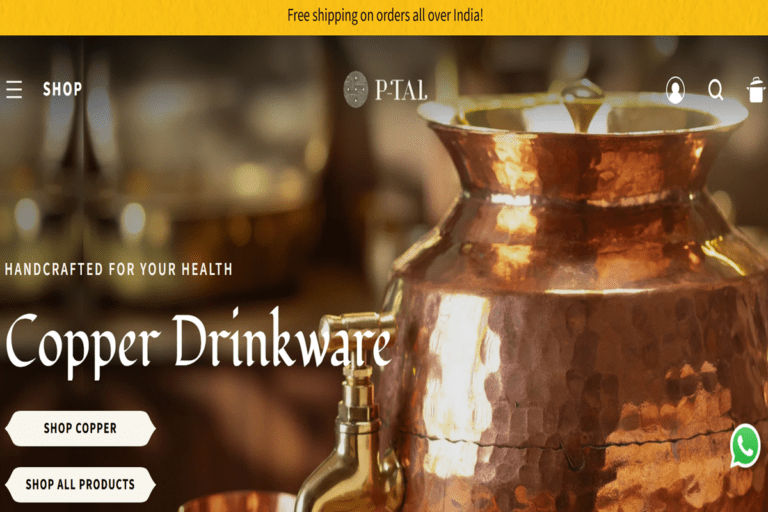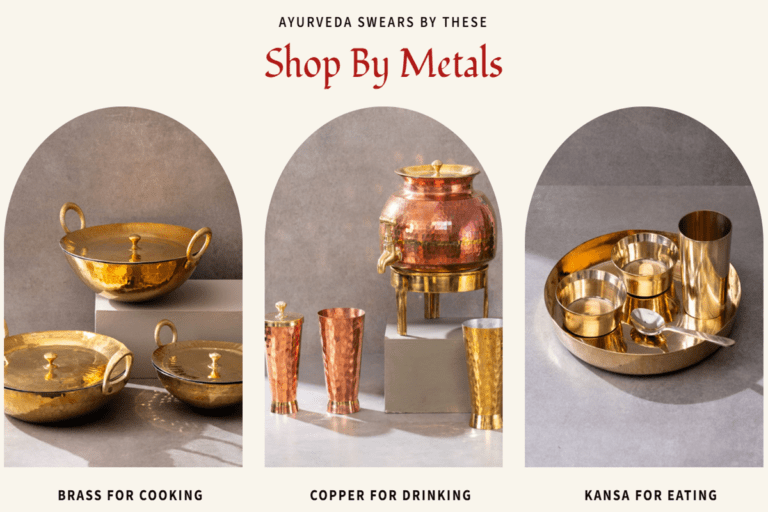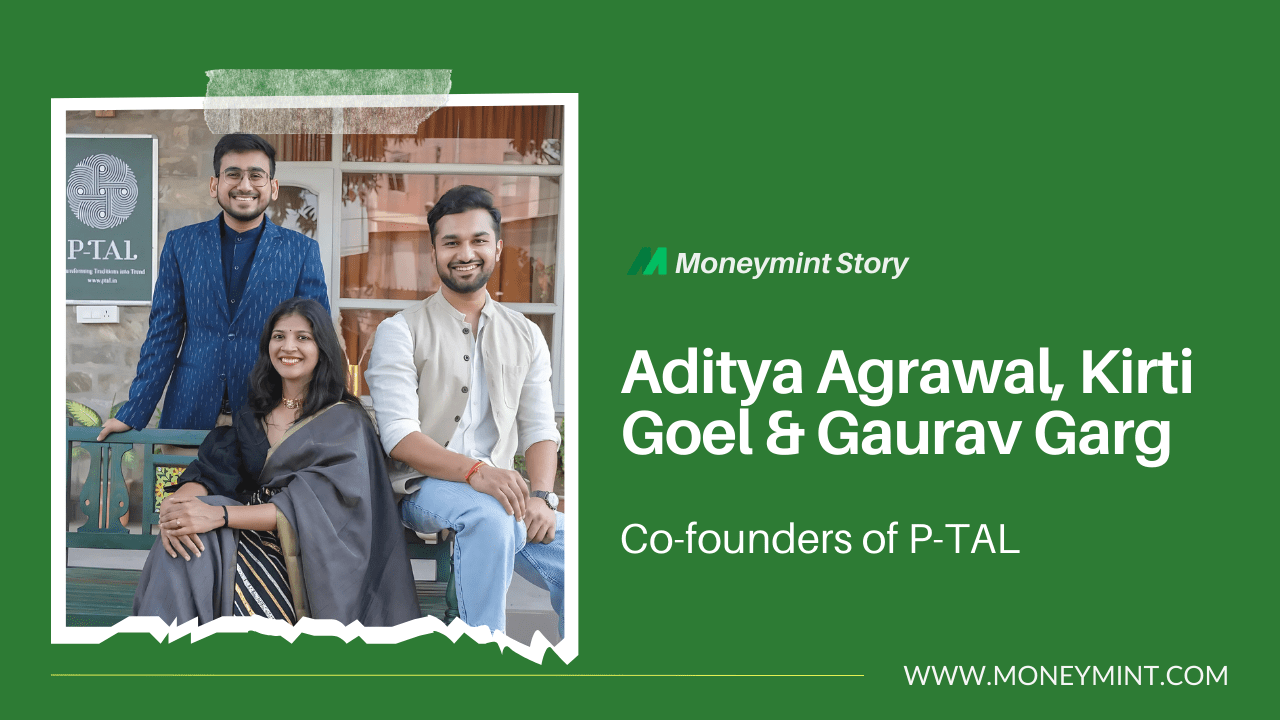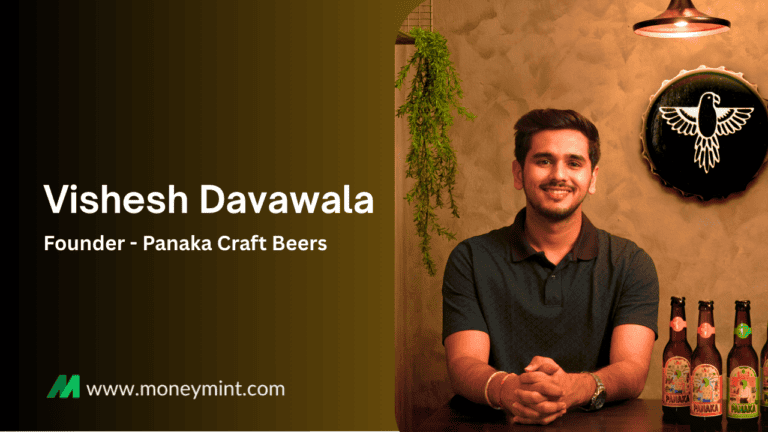You must have seen the P-TAL startup in Shark Tank India (season 3). Yes, the company which produces copper and brass kitchenware. But how come a young girl landed on such a unique perspective towards art?
When a teacher suggested aspiring engineer Kirti Goel to try and explore something in designing, it led her to traditional Indian craftsmanship. Starting from making a handcrafted handkerchief for her college project to founding a startup and earning Rs 36 crore a year, Kirti has supported the lost art and provided a livelihood to more than 50 artisan families.
| Startup Name | P-TAL |
| Founders | Kirti Goel, Aditya Agrawal, and Gaurav Garg |
| Industry | Kitchenware |
| Company Classification | Private Limited |
| Headquarters/based-in | Panchkula, Haryana, India |
| Idea | To rebuild the lost art of Thathera (India’s only UNESCO-listed craft form) craft from Amritsar, Punjab, and support the artisans. |
| Revenue | Rs 3.98 crore in FY 2022-23 |
| Date of Commencement | August 2020 |
| Investments | Received a deal of Rs 20 lakh each from Shark Tank India (S3) judges.
Raised Rs 4.33 crore in seed funding from Titan Capital, Anicut Capital (largest investor) and Angel List. |
| Number of Employees | 32 |
Competitors: Stainless steel and aluminum utensils and kitchenware companies.
The Problem: Why Does This Matter?
Kirti was having a hard time deciding which path to take after she understood that engineering is not her cup of tea. On a teacher’s suggestion to try something artistic or go for designing, Kirti applied to Pearl Academy and got selected.
While working on her 2nd year training program she saw the richness in Indian handmade crafts.
Unfortunately, such art is rapidly disappearing due to its rarity and lack of value or demand in the market. Thathera, the art of making copper and brass utensils and kitchenware involves skilled hard work but people do not understand the value.
Artisans are starving and many of them have shifted to some other jobs. They don’t even want the next generations to learn art due to the lack of financial security. Due to this, only at a few places in India, these skilled workers are found. They don’t have work and with each passing year, sales decline leading to less work.
The Solution: P-TAL – Punjab Thathera Art Legacy

Her 2nd year project was the turning point for her.
While researching more on crafts, Kirti came to know about the UNESCO-certified craft known as Thathera (meaning: the beater). It includes making traditional copper and brass kitchen utensils by HAND.
Learning more about it, inspired her to do something about it. Now, it became a matter of her pride to save the dying art.
This led to the startup of P-TAL in 2016 after thorough market research and customers’ demands and requirements.
Business Model: How Do They Make Money?
With its major customer base in Karnataka and Maharashtra, the company’s turnover is around Rs 36 crore per year.
In FY 2019-20, P-TAL’s revenue was Rs 21 lakh.
But in the next year, FY 2022-23, the revenue was Rs 3.98 crore.
Currently, P-TAL produces more than 80 types of products in the following categories: dinnerware, tableware, and kitchenware; drinking glasses, brass ladles, copper baking trays, tumblers, and especially, parats (a plate-like flat utensil to knead dough).
They source their products from 50 families of artisans who know the traditional art of Thathera.
Customers order on P-TAL->crafted by the artisans->once ready, are procured by the company. Based on the amount of work, these craftsmen are now earning Rs 25k to Rs 50k.
Challenges/Struggles: What Roadblocks Are They Facing?

Challenge: Once found in almost every village, now, most of the Thatheras switched work and migrated to different cities.
Solution: With in-depth research, she discovered that there are Thatheras in Lucknow, Jaipur, Dehradun, and Moradabad. Next, knowing their needs was not a difficult task and soon they started working together.
Challenge: Low wages, less work, and less demand, due to which workers were not ready with the concept.
Solution: Kirti hired them at Rs 150 per hour, valuing their skill. Mostly, such workers are working at Rs 20 per hour for such expertise. Moreover, with better and modern marketing and awareness, they have more clients, and now, they have work around the year.
Challenge: Lack of understanding among customers during the 1st year of business commencement.
Solution: Improved conversation, raising awareness through social media and offline too, people started purchasing their products with more interest.
Future Vision: What’s Next?
Kirti wants to continue her journey to deliver something different yet valuable to her customers while continuously growing and supporting the Thatheras. Moreover, P-TAL’s vision is that every household in the world has at least 1 P-TAL product.
Key Takeaways: Why Should Users Care?
From Kirti we should learn to value our traditions and cultures. Though we all may not find our breakthrough in it, yet we can support the artists and workers by promoting their work.
Moreover, if you have an artistic spirit like Kirti, you should take the leap and stand for what you think should be preserved.




